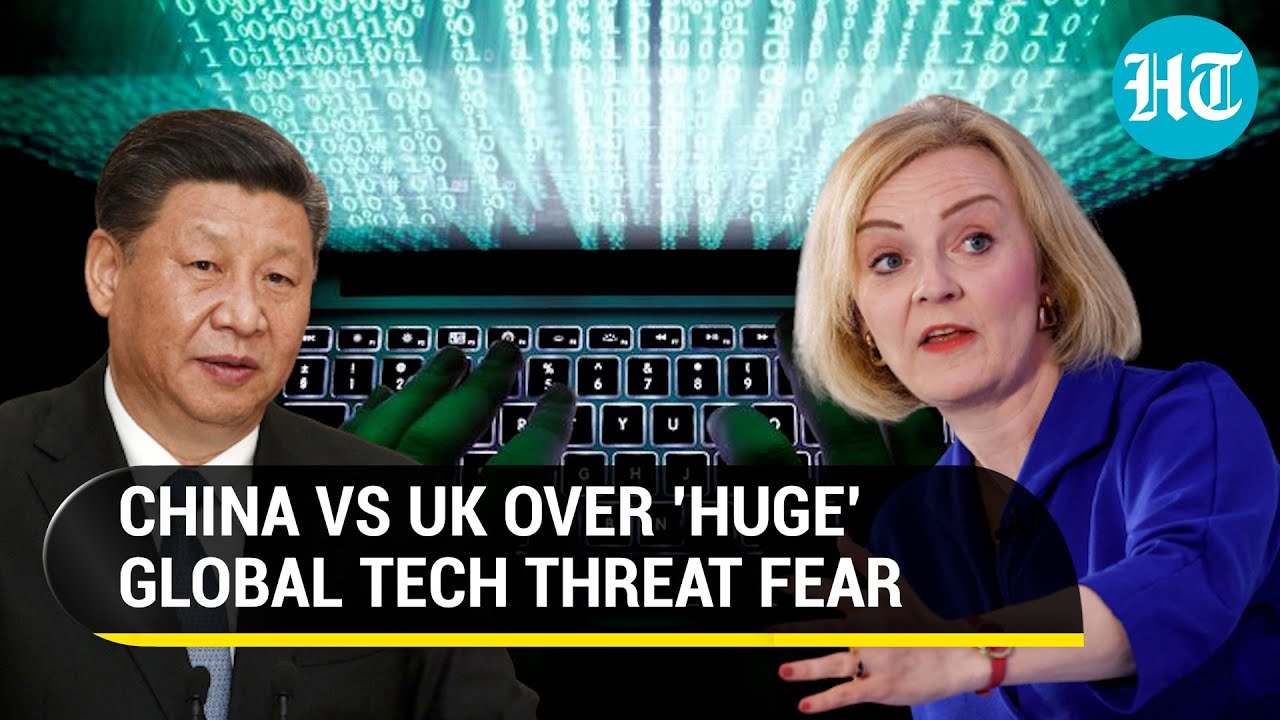The Head Of GCHQ Says China's Tech Advancement Poses A Threat To Global Security
The head of British intelligence says that China's tech advancement poses a threat to global security as China is trying to use satellites and digital money to stifle dissent at home and keep an eye on its enemies abroad. In contrast to the United Kingdom and its democratic allies, China sees technological progress as a "tool to gain an advantage through control of their markets, of those in their sphere of influence, and their own citizens," as stated in a speech excerpt by Jeremy Fleming, head of the United Kingdom's electronic spy agency, GCHQ.
Author:Rhyley CarneyReviewer:Paula M. GrahamOct 12, 20229.2K Shares128.7K Views

The head of British intelligence says that China's tech advancement poses a threat to global securityas China is trying to use satellites and digital money to stifle dissent at home and keep an eye on its enemies abroad.
In contrast to the United Kingdom and its democratic allies, China sees technological progress as a "tool to gain an advantage through control of their markets, of those in their sphere of influence, and their own citizens," as stated in a speech excerpt by Jeremy Fleming, head of the United Kingdom's electronic spy agency, GCHQ.
On Tuesday, Fleming warned London's military and security think tank, the Royal United Services Institute. Reporters were given sneak peeks of his remarks thanks to his staff. The head of intelligence warned that "great power paired with fear is pushing China towards acts that might constitute a significant danger to us all.
How Will China Use Its Technological Power And Influence?
In his speech, Jeremy Fleming will say that China is worried about its own people, freedom of speech, free trade, and open technical standards and alliances. He will discuss " the open, democratic order and the international rules-based system."
According to Fleming, this might push Xi's regime "into steps that could pose a significant danger to us all."
He will emphasize China's CBDC's creation of the digital yuan (e-CNY) as a possible instrument for asserting its control. A CBDC is a type of digital currency that is backed by real-world assets. This means that its price doesn't change as much as cryptocurrencies like Bitcoin.
Central banks worldwide are working on CBDCs as a safe way to make digital payments. China's e-CNY has reportedly been in development for two years, and the system was tested in four of the country's biggest cities last month. Fleming thinks China might utilize the e-CNY to more carefully monitoring user transactions while also avoiding any potential international penalties.
According to Reuters, the Chinese government has repeatedly denied similar charges from other countries as baseless and politically motivated. The GCHQ director also thinks that China's Beidou navigation system, which is being built as an alternative to the widely used and US-backed GPS system, might be used to disrupt the operations of other nations in space.
“„Many believe that China is building a powerful anti-satellite capability, with a doctrine of denying other nations access to space in the event of a conflict. And there are fears the technology could be used to track individuals.- Jeremy Fleming

China's tech dominance risk to global security? Beijing fumes over British spy's claims | Details
Chinese TikTok
The intelligence head said that he would not prohibit youngsters from using TikTok, which is owned by the Chinese corporation ByteDance, but those young people should be more conscious of their personal data and how it may be shared.
The intelligence head said that he would not prohibit youngsters from using TikTok, which is owned by the Chinese corporation ByteDance, but those young people should be more conscious of their personal data and how it may be shared.
He also said that I wouldn't forbid children from using TikTok, but I would talk to my kids about how they think about their personal data on their gadgets. We must realize from a young age that there is no free lunch here. We are trading our data for theirs when we use these services, which is fantastic as long as it is appropriate and we are satisfied with how that data is secured.
Chinese Collaboration With World Research Institution
Sir Jeremy, the agency director that oversees communications and cyberspace, has also urged a "grown-up" discussion on partnerships with China at UK universities. Some educational institutions have been criticized for working on cooperative projects with Chinese peers with military or surveillance links.
He said that the UK should continue to accept Chinese students but should "be very explicit on the areas of technology where we would need greater precautions." He stressed the importance of artificial intelligence and quantum computing to the audience.
China's construction of the BeiDou satellite system, a competitor to the current GPS network, which he said had resulted in exports to more than 120 nations. He stated it could be used to follow people or integrated with plans to destroy the satellites of other nations in the case of a war.
Final Words
Fleming said that the scientific and technological communities in democracies must rise to the challenge posed by China because the country focuses on strategically essential technologies. Fleming gave several examples of how China tried to get more power by changing international rules or messing with important technology.

Rhyley Carney
Author

Paula M. Graham
Reviewer
Latest Articles
Popular Articles